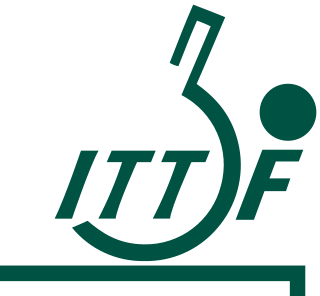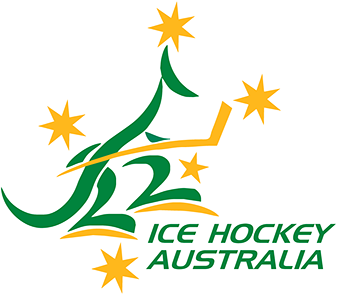
Football Australia is the governing body of soccer, futsal, and beach soccer within Australia, headquartered in Sydney. Although the first governing body of the sport was founded in 1911, Football Australia in its current form was only established in 1963 as the Australian Soccer Federation. It was later reconstituted in 2003 as the Australian Soccer Association before adopting the name of Football Federation Australia in 2005. In contemporary identification, a corporate decision was undertaken to institute that name to deliver a 'more united football' in deliberation from current CEO James Johnson. In December 2020, the name was changed to Football Australia.

The International Tennis Federation (ITF) is the governing body of world tennis, wheelchair tennis, and beach tennis. It was founded in 1913 as the International Lawn Tennis Federation by twelve national associations, and as of 2016, was affiliated with 211 national tennis associations and six regional associations.

The International Table Tennis Federation (ITTF) is the governing body for all national table tennis associations. The role of the ITTF includes overseeing rules and regulations and seeking technological improvement for the sport of table tennis. The ITTF is responsible for the organization of numerous international competitions, including the World Table Tennis Championships that has continued since 1926.

The State of Origin series is an annual best-of-three rugby league series between two Australian state representative sides, the New South Wales Blues and the Queensland Maroons.
The International Rugby League (IRL) is the global governing body for the sport of rugby league football. Previously known as the Rugby League Imperial Board, the International Rugby League Board and latterly the Rugby League International Federation, the IRL is responsible for the Laws of the Game, the development, organisation and governance of rugby leagues internationally, and for the sport's major international tournaments; most notably the Rugby League World Cup.

Sport is an important part of Australia that dates back to the early colonial period. Australian rules football, rugby league, rugby union, soccer and tennis are among the earliest organised sports in Australia. Cricket is regarded as the national summer sport, with people widely participating from the months of September to April. Boxing day test cricket match is the most popular sporting event in summer. Sport has shaped the Australian national identity through events such as the Australia vs USA basketball match in 2019 which attracted over 100,000 people over 2 games, the Melbourne Cup and the America's Cup.
A gaming control board (GCB), also called by various names including gambling control board, casino control board, gambling board, and gaming commission) is a government agency charged with regulating casino and other types of gaming in a defined geographical area, usually a state, and of enforcing gaming law in general.

Australia's softball history began in 1939 when Gordon Young, Director of Physical Education in NSW, began to promote the game in schools and colleges. In 1942, during World War II, US army sergeant William Duvernet organised softball as a recreation for US nurses stationed in Victoria. Another American, Mack Gilley, introduced the game to Queensland in 1946. Australia's first inter-state championship was played in Brisbane in 1947 and was won by Victoria. The second national championship was held in Melbourne two years later. It was at this championship that the Australian Softball Federation was formed with Queensland, Victoria, South Australia and New South Wales being the founding members. The other States of Australia have since joined. Eight Australian Championships are now conducted each year - Women's, Men's, Under 23 Women and Men, Under 19 Women and Men, and Under 16 Girls and Boys. Softball has been a major sport in the schools program for some time now and it is estimated that more than 250,000 children play the game each year.
Lacrosse in Australia is a minor sport, with a long and proud history dating back to 1876, with a small but dedicated community of participants and volunteers. The established centres for lacrosse are in the greater metropolitan areas of Melbourne, Adelaide, and Perth. In these cities there are organised weekend field lacrosse competitions for men and women at senior and junior levels, played over the winter months. In the off-season, there are informal box lacrosse and sofcrosse competitions, though the majority of players in Australia are mostly of the field lacrosse type. Some lacrosse is also played in Sydney, Newcastle, South East Queensland, Canberra and Hobart, it is very much at the developmental level.

Soccer, also known as football, is the most played outdoor club sport in Australia, and ranked in the top ten for television audience as of 2015. The national governing body of the sport is Football Federation Australia (FFA), which until 2019, organised the A-League, W-League, and still organises the FFA Cup, as well as the men's and women's national teams. The FFA comprises nine state and territory member federations, which oversee the sport within their respective region.
The Australian Chess Federation (ACF) is dedicated to promoting the game of chess in Australia, and is a member of FIDE, the World Chess Federation.

Netball is the most popular women's team participation sport in Australia. In 1985, there were 347,000 players. In 1995, there were over 360,000 Australian netball players. Throughout most of Australia's netball history, the game has largely been a participation sport; it has not managed to become a large spectator sport. In 2005 and 2006, 56,100 Australians attended one to two netball matches. Of these, 41,600 were women. 46,200 attended three to five netball matches, with 34,400 of those spectators being women. 86,400 attended six or more netball matches, with 54,800 spectators being female. Overall, 188,800 people attended netball matches, with 130,800 being female. In 2005 and 2006, netball was the 10th most popular spectator sport for women with Australian rules football (1,011,300), horse racing (912,200), rugby league (542,600), motor sports (462,100), rugby union (232,400), football (212,200), harness racing (190,500), cricket (183,200) and tennis (163,500) all being more popular. The country set an attendance record for a netball match with a record crowd of 14,339 at the Australia–New Zealand Netball Test held at the Sydney Super Dome game in 2004.
Swimming Australia is the peak governing body for competitive swimming in Australia. The body has approximately 100,000 registered members nationally in 1100 clubs across the country, which includes swimmers, coaches, officials, administrators and volunteers. The body oversees the management and development of the sport from the national team at the elite level, the conduct of national and international events, through to grass roots participation. The organisation's vision is to become Australia's leading sport through increased participation, continual outstanding performance and commercial excellence.
Maccabi Australia is a Jewish Australian sporting organisation. It is part of Maccabi World Union. Maccabi teams compete in many sports such as association football, Australian rules football, basketball, table tennis and more. Maccabi Australia is an affiliate of the Zionist Federation of Australia.

The Australian Ice Hockey Federation, currently trading as Ice Hockey Australia (IHA), is the official national governing body of ice hockey in Australia and is a member of the International Ice Hockey Federation. It was first established in 1908, making it one of the oldest national ice hockey associations in the world.
Rugby union has a long history in Australia, with the first club being formed in 1863 at Sydney University. Today it holds tier one status with World Rugby and has over 82,000 players nationwide.

The Australian Rugby League Commission is the official governing body of rugby league football within Australia. It was founded, as the Australian Rugby League 'Board of Control', in 1924, jointly by the New South Wales Rugby League and the Queensland Rugby League. Since 1924, all other state and territory Rugby League governing bodies have become affiliated to the League.
Sport in Bangladesh is a popular form of entertainment as well as an essential part of Bangladeshi culture. Cricket is the most popular sport in Bangladesh. Ha-du-du is the national sport of Bangladesh. Bangladesh is one of the top 7 cricketing nation of the world and have regularly qualified for World cup since 1999, the Country achieved arguably their greatest heights in Cricket when they defeated three of top-rated teams in 2015 Cricket World Cup to qualify for the quarterfinals. In 2015, they white-washed Pakistan and clinched the series by 3-0 and in another major achievement they won a series against India by 2-1 and in the same year they beat South Africa 2–1 in an ODI series and cemented their spot in Champions Trophy 2017. Traditional sports like Athletics, Swimming, Ha-du-du, Boli Khela, Lathi Khela are mostly played in the rural areas while foreign sports like cricket, football, hockey, volleyball, handball, golf, badminton etc. are more popular among the urban folks. The National Sports Council (NSC) is the governing body to control all the sports federations and councils in the country and is responsible to the ministry of youth and sports. There are a total of 42 different sports federations affiliated with the NSC. Bangladesh Games is the largest domestic multi-sport tournament in the country where athletes and sports teams from all the districts participate.
The history of sport in Australia dates back to the pre-colonial period of the country.











